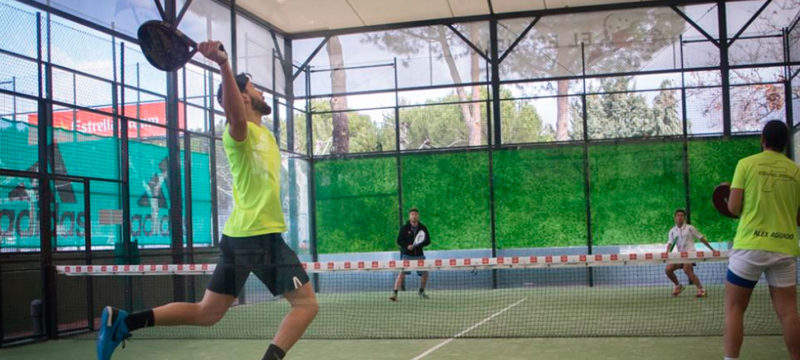Most padel players at any level enjoy watching World Padel Tour matches and dream of imitating the moves of their favorite padel players. However this might not be the most effective way of spending your time if you’re an amateur player and are trying to win more matches.
What does being an amateur player really mean? It just means what you play below pro level—you may do some aspects quite well, but you still muck things up that a professional never would. It might be that the way you move is not the most efficient, and you tire yourself out halfway through the match, or that you simply lack certain shots in your repertoire, or even having a less developed sense of anticipation.
There’s a huge upside to being an amateur, however. One thing that is crucial to know is that the pros aren’t simply better than amateurs, but that they win their matches in a completely different way.
When pros play, matches are decided mostly by a slight edge one player has over the other—in speed, awareness, or some other highly-trained quality. Their rallies go back and forth, all players knowing where they need to be, until one player puts hits a shot that forces a mistake on the other end. Pro players have all the fundamental elements mastered, and they win by being slightly better than their opponent at one or more of them.
When amateurs meet, they don’t edge each other out by being slightly more skillful. Instead, it’s a contest of who makes the fewest huge, gaping blunders. Amateurs constantly make egregious point- and game-losing mistakes, of the sort that pros no longer make. The outcome is decided by who makes the fewest—or least catastrophic—such mistakes.
And of course it works that way. Getting to the pros is a long, arduous process, one that filters out players with major flaws in their game. Coaches leap on those flaws as soon as they see them and drill them out of their athletes. Amateurs don’t go through this filtering process, so the flaws and bad habits remain, costing them bigtime every single time they play.
Everyone’s strategy, therefore, should be to identify and eliminate these big, costly rookie blunders, one by one. This is far more effective than getting quicker, hitting harder, or making that one brilliant shot now and then.
Just one of these blunders, made consistently, can undermine almost everything you’re doing right. Each is like a hole where your success leaks out. If the hole is big enough, or there are multiple holes, it’s hard to get anywhere beyond “struggling,” no matter how good you are at other parts of the game.
The good news: this also means that fixing even one such hole, or starting to, will make you immediately better, and not by just a little. What are your chronic amateur mistakes? Think about where you’ve been stagnant, and ask yourself what you do that the pros would never allow themselves to do.
What are the big holes in the tub? If you don’t know, any veteran can surely tell you.

